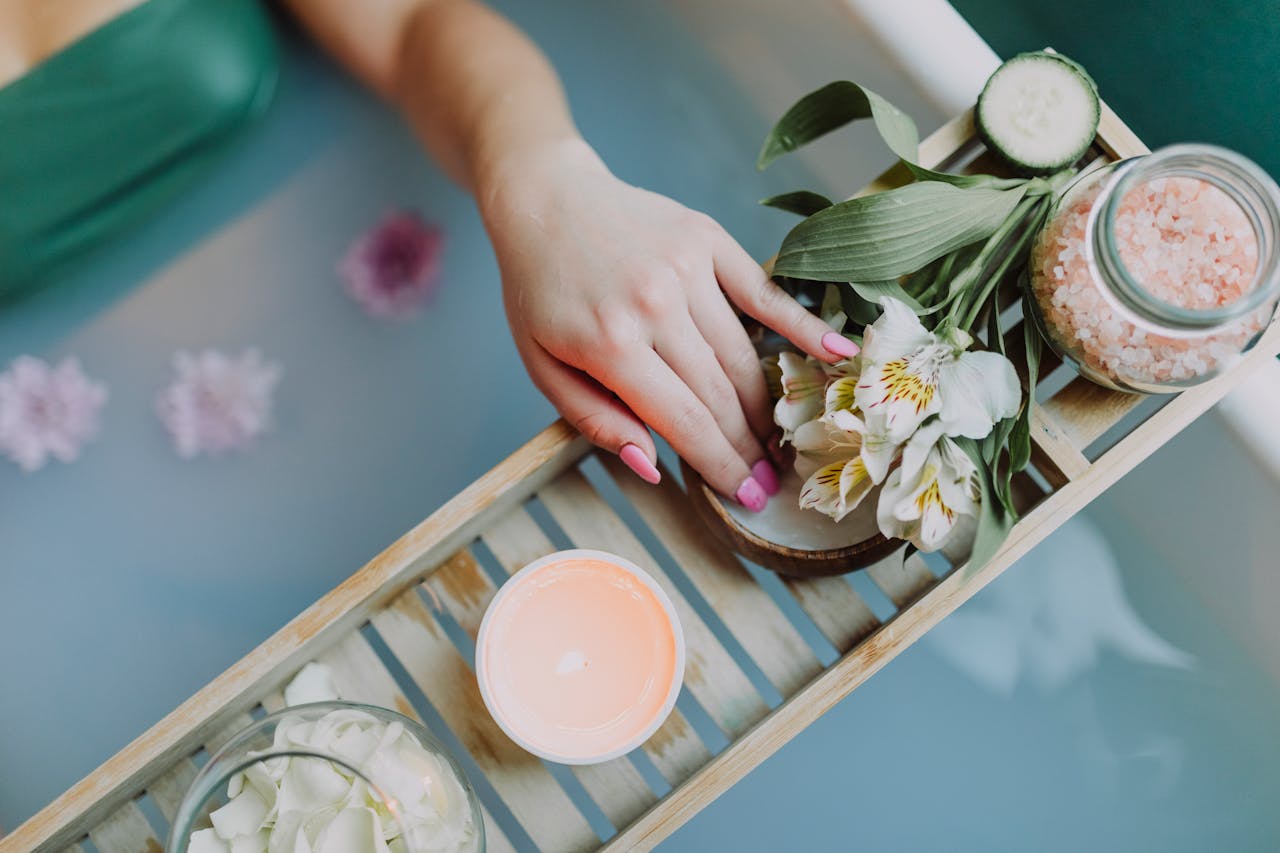Working hours
Mon - Fri: 8am to 5pm
Mon - Fri: 8am to 5pm
Share

As a nursery worker, you’re constantly giving care to the little people in your setting. As a nursery manager or owner, you have plenty of staff to look after too. Working in the Early Years sector can be emotionally and physically challenging, especially if you don’t take time to prioritise your own needs.
So what’s to be done? What could you do? Would you like to use your Christmas break, however long it may be, to get you back to your energised best? You can with self-care.
Here we explore what self-care is, why it matters and the best ways to embrace it, so you can start the new year off on the right foot.
There’s a lot of talk about self-care and well-being as we become more aware of the importance of mental health. Yet they remain somewhat elusive phrases. What do we really mean?
Self-care is essentially looking after yourself. Since you spend a lot of time taking care of others in your life, it’s important you’re not forgotten, and self-care ensures you’re not.
Self-care can look like many different things depending on what care you feel you need at a particular moment in time. Maybe you would benefit from time alone, some exercise, or the opportunity to spend time with friends. It’s not what self-care is that counts, but what it offers you.
Which leads us to well-being. Your well-being is how you feel overall, how happy, balanced and energised you are. It’s important that your emotional, physical, mental and social world is fulfilling and rewarding, so you generally feel positive and satisfied.
Many shy away from self-care or feel embarrassed about the idea. Most wonder, “Isn’t it selfish?” But the truth is, it’s not a question of being selfish – it is essential. Taking responsibility for your own needs so that you can take care of others’ needs too. No one can pour from an empty cup so take the time to learn how to fill yours up.
Without self-care, you’re putting yourself in a vulnerable position where you’ll likely end up exhausted. Unable to carry out your responsibilities and definitely operating from an empty cup. What happens then? No one gets their needs met.
In order to give to those you love and care for, you have to fill your own cup first. Else you’ll be running dry and unable to carry on. If you really want to be in a position to keep caring, you must prioritise self-care.
From a place of rest, you’ll be able to give the best of yourself and discover a greater sense of pride and fulfilment.

Christmas itself can be an incredibly stressful time. There’s so much to do! Big family get-togethers, last-minute presents to find and dozens more to wrap. It can feel less merry and bright and more fraught and distraught.
How about this Christmas, you gift yourself and ask others to give you some time for self-care?
You may have to loosen some control over Christmas arrangements and delegate tasks to others. But does it really matter if the table decorations are blue instead of white? Or if you have gateau instead of Christmas pudding for dessert?
Let go of the little things and relieve some self-inflicted pressure. None of that stuff truly matters. Especially not when your health and well-being are at stake.
How can you practice self-care this Christmas? Here are 6 ideas to get you started:
Your mind and body are inextricably linked – when you take care of one, you’ll look after the other. So pamper yourself this Christmas! It needn’t be extravagant or expensive. Get your nails painted a festive red, take a luxurious bubble bath, moisturise your skin or get your hair trimmed. A little pampering goes a long way to helping you feel good about yourself.
It’s no secret that exercise releases feel-good hormones. It doesn’t need to be a full-intensity training session (unless that’s your thing), just move your body in a way that feels good to you.
Go for a long woodland walk, put on some Christmas tunes and dance around your house, plunge into a pool for a relaxing swim or cycle along the seafront. Choose something that lets you zone out for a bit, and feel like you are back in your body!
What did you spend your time on before you got too busy? Maybe it was reading, knitting or dancing.
Whatever it was, how about you pick it up again this Christmas period? Everything you used to love about it is still there waiting to be enjoyed. Help yourself feel relaxed and exhilarated by taking up those long-forgotten favourite pass times once again.
With the flurry of festive activities, it can seem counterintuitive to slow down. But you’re wrong! Give yourself time to pause and slow down, it will help you refocus and be more productive. You’ll realise what matters and what definitely doesn’t. You’ll stop fretting over gift tags and Christmas lights and laugh at yourself for getting caught up in it all.
Switch off your devices, tune out the noise and put your feet up. There’s not much that can’t be fixed with a hot drink, a biscuit and some good old peace and quiet.
Winter is supposed to be a time for hibernation, right? Make the most of this cold, dark time of year by staying in bed until the sun comes up (or longer). Stay in your pj’s all day if you want – with absolutely no guilt. Even better, make them Christmas pj’s and everyone will just think you’re being festive! The extra sleep and relaxation will leave you feeling refreshed and recharged.
A little dreaming does a world of good to a tired and lacklustre mind. What would you like to achieve in the new year? Set some time aside to ponder on your goals and make some plans to accomplish them. You’ll ignite a sense of hope and likely feel a spark of inspiration and joy. It doesn’t get more Christmassy than that!

When you’re more familiar with your state of well-being and practice self-care regularly, you’ll be in the best possible position to support yourself and anyone you’re responsible for. It has a profound knock-on effect on the people you spend time with; they sense your positivity, and it’s catching.
Your team will appreciate your sunnier disposition, which will feed into your Early Years practice. Staff and children alike will feel more appreciated, content and well-regulated. Colleagues who feel happy and valued are more likely to work hard and stick around.
Understanding your own state of mind and prioritising your needs is a critical life skill. With this new knowledge, you can benefit any Early Years setting. Everyone from your longest-serving team member to your youngest child will feel and learn the benefits too.
Would you like to know how to foster well-being in your nursery setting? We’re running a ‘Relax & Wellbeing’ training course from January, get in touch
With the ever-changing regulations and guidance, join our monthly newsletter to stay current and learn more about running a better childcare setting.
Simply enter your details below to join our mailing list.
"*" indicates required fields
By completing this form you are agreeing to our privacy policy You can unsubscribe at any time

Millennium House, High Street,
Studley, Warwickshire, B80 7HJ.